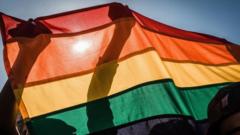Despite facing scrutiny from various economists who argue that such financial assistance can perpetuate dependency in developing nations, the World Bank remains a pivotal contributor to Uganda’s economic development, with essential projects in infrastructure and social services already approved. Uganda's government justifies the anti-LGBTQ legislation as a preservation of traditional values, but critics assert this distracts from pressing social issues such as unemployment. The fallout from the law has already cost Uganda an estimated $470 million to $1.7 billion, driven largely by interrupted international financing.
The situation continues to evolve as reports emerge of increased violence against LGBTQ individuals due to the allowance of this law. The World Bank's decision marks a complicated attempt to balance financial support for development and advocacy for human rights in a challenging socio-political landscape.
As Uganda grapples with its complex relationship with LGBTQ rights, international observers remain watchful of how the interplay of economics and human rights will shape the future of the nation.
The situation continues to evolve as reports emerge of increased violence against LGBTQ individuals due to the allowance of this law. The World Bank's decision marks a complicated attempt to balance financial support for development and advocacy for human rights in a challenging socio-political landscape.
As Uganda grapples with its complex relationship with LGBTQ rights, international observers remain watchful of how the interplay of economics and human rights will shape the future of the nation.



















